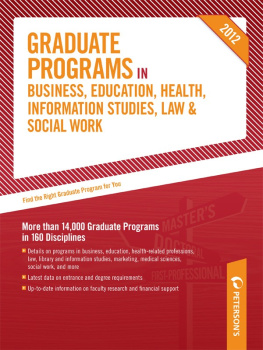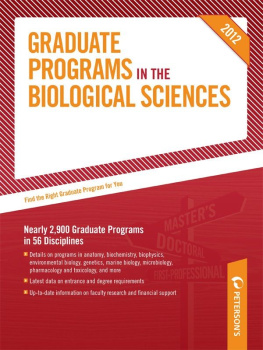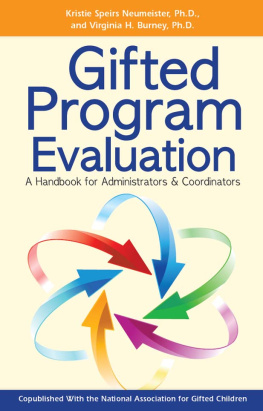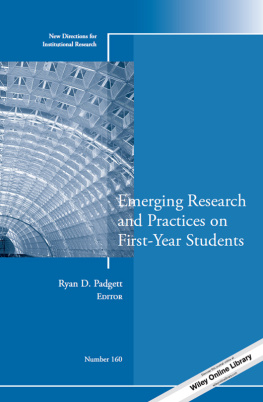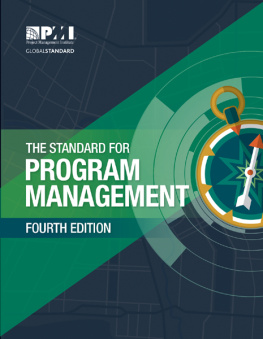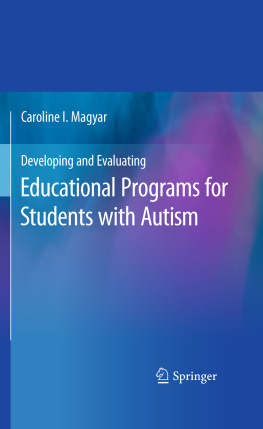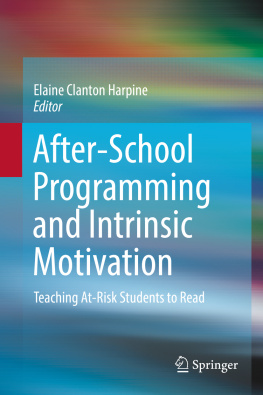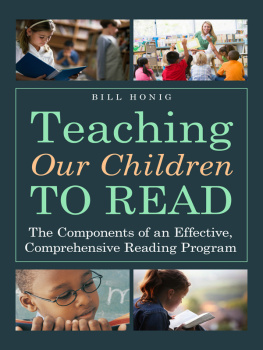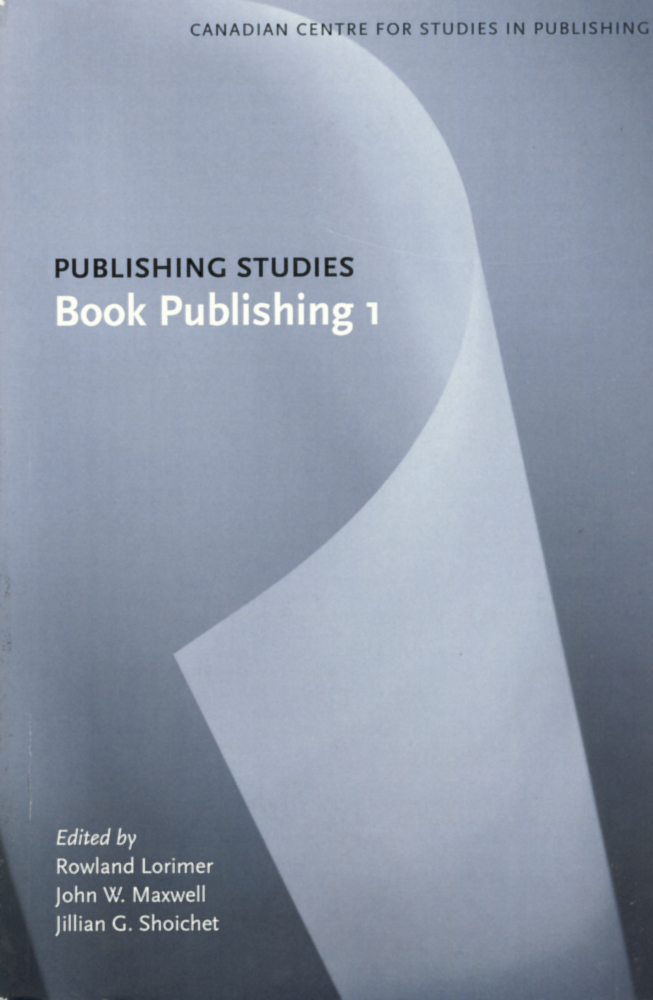Acknowledgements
The authors and editors of this volume wish to thank the various individuals and companies that cooperated with the gathering and analysis of the information presented in these works for their permission to include work done inside their firms. It can be difficult to allow work to be published that is descriptive of ones viewpoint and practices, and the Canadian Centre for Studies in Publishing ( ccsp ) and the Master of Publishing Program sincerely appreciate the understanding of all involved. The firms in question are:
- Raincoast Books
- Oxford University Press Canada
- Key Porter Books
- McClelland & Stewart
- Madrigal Press
- Pearson Education Canada
- Academy Chicago Publishers
- The Dundurn Group
The ccsp also wishes to thank the many different individuals and firms that have contributed to the MPubs success and its educational and research activities. Many different firms have taken on MPub interns and helped them launch careers in publishing.
Our advisory board has been most helpful. Over the years, there have been many members, but the following members can be singled out for their contribution: Don Atkins, Harold Bohne, James J. Douglas, Douglas Gibson, Cynthia Good, Katherine Govier, Francess Halpenny, Ralph Hancox, Janice Kulyk Keefer, Michael Levine, Keri Longpr, Allan MacDougall, Aaron Milrad, Basil Stuart Stubbs, Bob Tyrell, Karl Siegler, Ann Cowan, Andr Vanasse, and Howard White.
And a variety of companies, government departments, and individuals have assisted our efforts with considerable financial generosity. They include Readers Digest Foundation Canada, Donald and Barbara Atkins, Random House Canada, Pearson Penguin Canada, James J. Douglas, Ralph Hancox, HarperCollins Canada, Arthur and Angie Fouts, the Department of Canadian Heritage, and the Canada Council for the Arts, in particular Allan Clarke and Gordon Platt, and the Simon Fraser University Publications Fund.
Many others also deserve thanks. To provide a sense of those involved in the Master of Publishing Program, over the past year the following individuals shared their knowledge and experience with MPub students: Haig Armen, Bruce Bachelor, Esther Besel, Ria Bleumer, Alessandra Bordon, Shaun Bradley, Doug Burgess, Brian Busby, Peter Cocking, Sandy Cooper, Brad Cran, Erin Creasey, Dave Donald, Sue Dritmanis, Jesse Finkelstein, Linda Francis, Cynthia Good, Amanda Growe, Ralph Hancox, Lynn Henry, Noel Hulsman, Bonnie Irving, Vici Johnstone, Blaine Kyllo, Peter Ladner, Brian Lam, Evelyn Lau, Anthea Lee, Gordon Listoe, Gloria Ma, Eithne McCredie, Robert McCullough, Scott McIntyre, Cathy Mullahy, Wilson Nam, Stephen Osborne, Doug Plant, Peter Robson, Jorge Rocha, Anne Rose, Gary Ross, Rob Sanders, Mary Schendlinger, Don Sedgwick, James Sherrett, Carolina Soderhelm, Neil Soper, Scott Steedman, Jessica Sullivan, Jim Sutherland, Kiley Turner, Shelley Warner, Jan Whitford, Kevin Williams, Connie Wilson, and Hastings Withers.
Contributions to our Summer Publishing Workshops were made by many others, including in the last year: Carol Aitken, David Albahari, Gail Anderson-Dagatz, Bruce Batchelor, Michelle Benjamin, Michelle Berry, Tom Best, Shaun Bradley, Jamie Broadhurst, John Burns, Brian Charles, Doris Cheung, Kristin Cochrane, Peter Cocking, Anne Collins, Jennifer Conroy, Dean Cooke, Lynn Cunningham, Trevor Dayton, Shannon Emmerson, Nancy Flight, Karen Foss, Daniel Francis, Claude Galipeau, Marion Garner, James Glave, John McLachlan Gray, Andrew Gregory, Kevin Hanson, Michael Hayward, Lynn Henry, Dale Hrabi, Anosh Irani, Paul Joseph, Ruth Kelly, Janice Kulyk Keefer, Vlad Konieczny, Martin Levin, Ruth Linka, Sheryl Mackay, Julie Miller, Robert McCullough, Jason Mogus, Ira Nadel, Lance Neale, Stephen Osborne, Robert Ouimet, Dot Middlemass, Ingrid Paulson, Emma Payne, Peter W. Perine, Gordon Platt, Barbara Pulling, Scott Richardson, Craig Riggs, Jorge Rocha, Gary Ross, Denise Ryan, Mary Schendlinger, Don Sedgwick, Martha Sharpe, Beverley Sinclair, Neil Soper, Randy Squires, Rick Staehling, Scott Steedman, Jim Sutherland, Meg Taylor, and Ruth Wilson.
Introduction
Most people know that publishers read manuscripts and select those that they want to publish; that they then edit them and have them printed and sell them to booksellers. Most books on publishing deal rather indirectly with such processes. Often they are memoirs by famous editors and successful publishers that, in describing their careers and viewpoints, are celebratory tomes or rueful predictions of the deterioration of a greatness that once was. There are also some general how-to books that are useful but there is a lack of a rich literature about the many elements of the publishing process and on the business of publishing. And as this collection of essays makes clear, there is much, much more to publishing books successfully than the bare bones outline provided in the first sentence of this paragraph.
This lack of a widely conceived, published literature is ironic and has an unfortunate consequence for publishing as a whole. It means that the publishing profession spurns the use of the very medium over which it has mastery to create both dialogue and a recorded history. It also means that the profession has infrequent access to considered book-length internal and external analyses brought forward by practitioners, outside experts, and researchers. For publishing education it means that many publishing courses rely on the week-by-week reflections of the experienced professionals who serve as instructors. This reliance means that, like the prevailing wisdom in the industry, the core content of the courses is most often current practice. The best instructor one can expect is someone who is an outstanding professional and also a reformer, with a desire to teach and ideas about how industry practices could be improved. But rarely are such reformers inclined toward systematic, dispassionate, and considered analysis, and development and testing of new methods of publishing.
The Master of Publishing (MPub) Program and the Canadian Centre of Studies in Publishing ( ccsp ) at Simon Fraser University have two main purposes that address these inadequacies and reflect the role of the university in society. First, and most obvious, is that students must be taught well. So scholars are paid, in part, to apprise students some from the industry and others new to it of current knowledge. Equally important, scholars are given the opportunity to undertake new research and to make their findings known to publishing professionals, students of publishing, and, in general, members of society. In this area, MPub students and the ccsp have been especially active, as this collection of essays demonstrates.
The dual mandate of research and teaching that underlies the MPub and ccsp means that existing professional practices and emerging trends are both introduced and evaluated alongside non-publishing frameworks such as marketing, accounting, intellectual property concepts, history, public policy, and Internet and other technology developments. Research is combined with teaching, and thus principles and analytical frameworks are brought forward to encourage innovation both by students in the program as they join the industry and by practitioners in the industry, who are the primary audience for research undertaken by the program.
The dual mandate of education and research is entrenched in the Master of Publishing Program in three ways. First is its status as a graduate degree program. Second is its combination of project courses and seminars. Third is its requirement that each student perform research for a graduating project and write a report on that project. With the submission of the first report of the fully launched program David Schimpkys case-study analysis of the role of publicity and promotion in the marketing of


